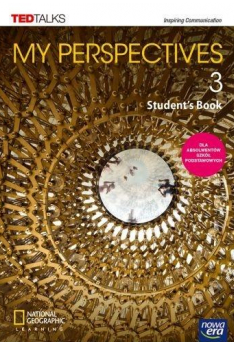II liceum
Język angielski
Lista zadań Strona 64
Strona 64
- Strona 4
- Strona 5
- Strona 6
- Strona 7
- Strona 8
- Strona 9
- Strona 10
- Strona 11
- Strona 13
- Strona 14
- Strona 15
- Strona 16
- Strona 17
- Strona 18
- Strona 19
- Strona 20
- Strona 21
- Strona 22
- Strona 23
- Strona 25
- Strona 27
- Strona 29
- Strona 30
- Strona 31
- Strona 32
- Strona 34
- Strona 35
- Strona 36
- Strona 37
- Strona 38
- Strona 39
- Strona 40
- Strona 41
- Strona 43
- Strona 45
- Strona 47
- Strona 48
- Strona 49
- Strona 50
- Strona 51
- Strona 52
- Strona 53
- Strona 54
- Strona 55
- Strona 56
- Strona 57
- Strona 59
- Strona 61
- Strona 63
- Strona 65
- Strona 66
- Strona 68
- Strona 69
- Strona 70
- Strona 71
- Strona 72
- Strona 73
- Strona 74
- Strona 75
- Strona 77
- Strona 79
- Strona 81
- Strona 82
- Strona 83
- Strona 84
- Strona 86
- Strona 87
- Strona 88
- Strona 89
- Strona 90
- Strona 91
- Strona 93
- Strona 95
- Strona 97
- Strona 98
- Strona 99
- Strona 100
- Strona 102
- Strona 103
- Strona 104
- Strona 105
- Strona 106
- Strona 107
- Strona 108
- Strona 109
- Strona 111
- Strona 113
- Strona 115
- Strona 116
- Strona 117
- Strona 118
- Strona 119
- Strona 120
- Strona 121
- Strona 122
- Strona 123
- Strona 124
- Strona 125
- Strona 127
- Strona 129
- Strona 131
- Strona 132
- Strona 133
- Strona 134
- Strona 135
- Strona 136
- Strona 137
- Strona 138
- Strona 139
- Strona 140
- Strona 141
- Strona 142
- Strona 143
- Strona 145
- Strona 147
- Strona 148
- Strona 149
1
Work in groups. Make a list of things your older relatives might say about the things if they were asked the question 'What advice would you give to young people?'dreams and ambitionshealthattitude to lifemoney and possessions relationships ork and free time
2
Listen to the advice of eight older people. How many of your ideas in exercise 1 did you hear?
3
Work in pairs. Can you remember the advice? Complete each sentence with no more than six words. Then listen again and check your answers.Speaker 1 There's no point worrying about… yet.Speaker 2 Don't accept anything without first… it.Speaker 3 You're going to say: 'I wish I had... myself.Speaker 4 Don't wake up and realise you haven't… doing.Speaker 5 Don't hold on to material… hold on to… instead.Speaker 6 If only someone had told me earlier not to prioritise… friends.Speaker 7 Brush… Speaker 8 Basically, my advice is:…
4
Work in pairs. Which is the best piece of advice? Why?
5
Listen to a man talking about various episodes in his life. Choose the correct answer to each question.1 Why did the man study medicine?a He wasn't accepted as a soldier.32b He decided on medicine at the end of high school. He had thought about it for a few years.2 How did his attitude to physical exercise change after he had gone to work?a He started training more than before.b He didn't train as much as he had trained before. c He gave up one sport but took up another one. 3 How did he meet his future wife?a They had a workshop together.b When he was on holiday with his family.c When he went out for a walk after a workshop. 4 What does he regret doing in the past?a moving to another cityb accusing his friend of things he hadn't done c not telling the truth about his friend5 Which is true about the man?a He used to be a quiet person as a young man. b He used to do some risky sports.c He gave up doing risky sports after an accident that had happened to him.
6
Listen again. Match the situations in the man's life (1-5) with the effect it had (a-e).1 He worked hard in high school.2 He didn't take care of his physical condition.3 He went for a walk in Prague.4 He didn't have the courage to say what he knew.5 He didn't do bungee-jumping or other dangerous sports.a He managed to do well in his medical studies. b He doesn't know the feeling of an adrenaline rush. c His friend lost his job and moved away.d He had problems with weight and blood pressure. e He met a girl, who later became his wife.
7
Work in groups and discuss.1 Make a list of six situations when young people do or say things they later regret. Think about situations related to school, family or friends.2 Why do people usually regret saying or doing the things? What are the consequences?3 Think about two important decisions that you had to make in your life. Why were they so important? What were their effects?
